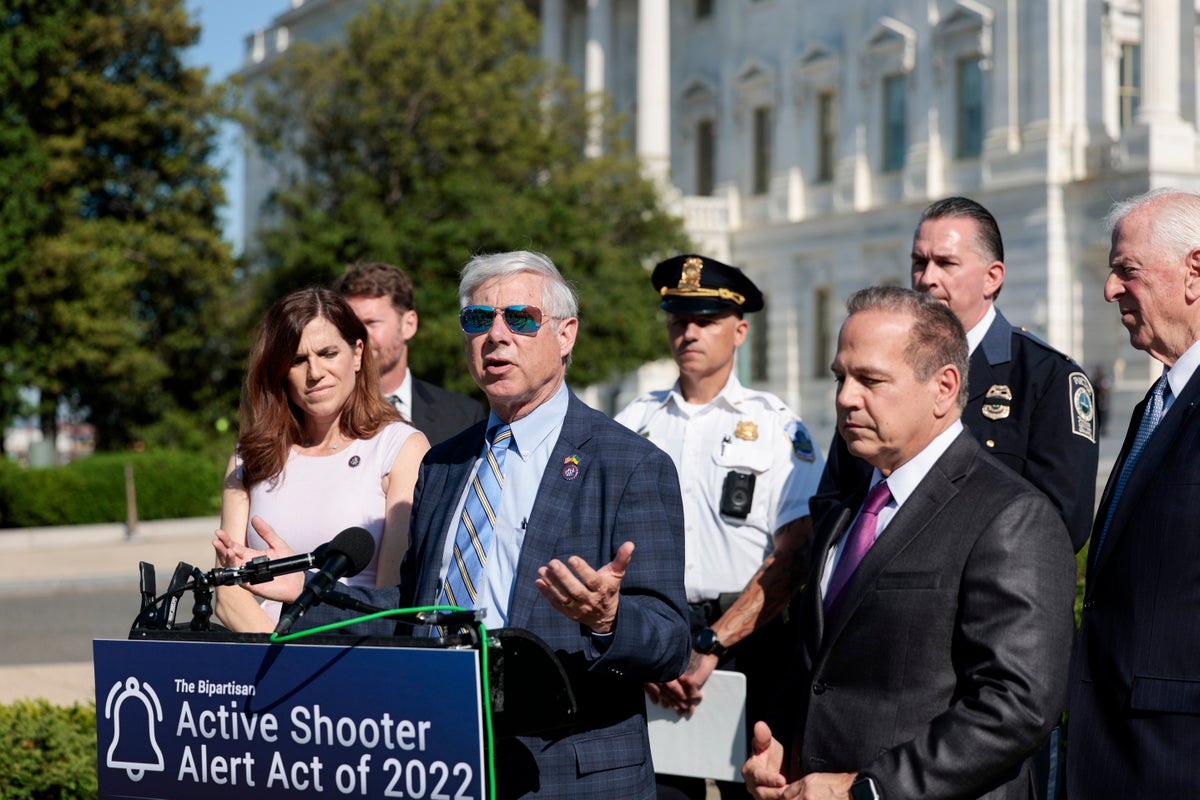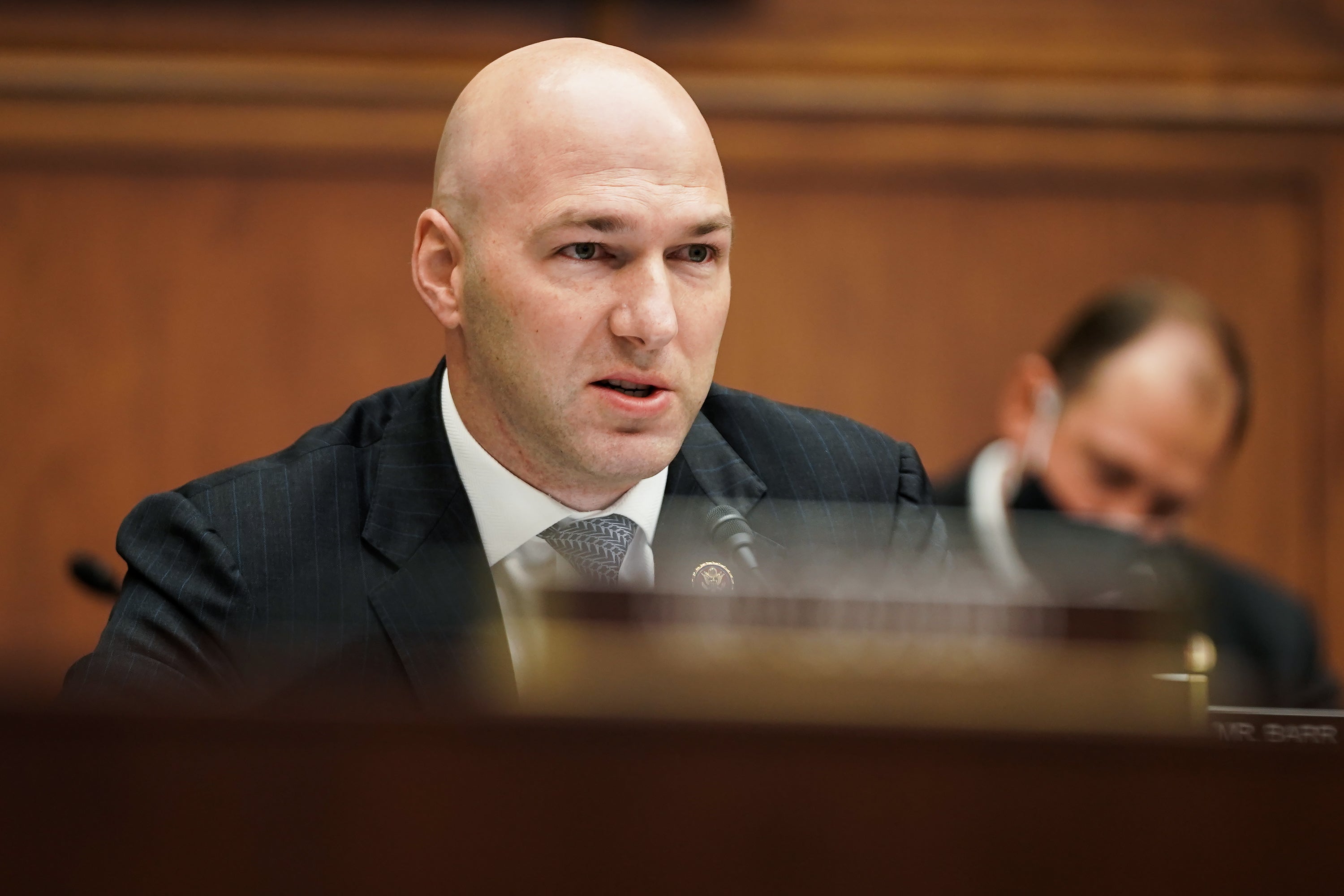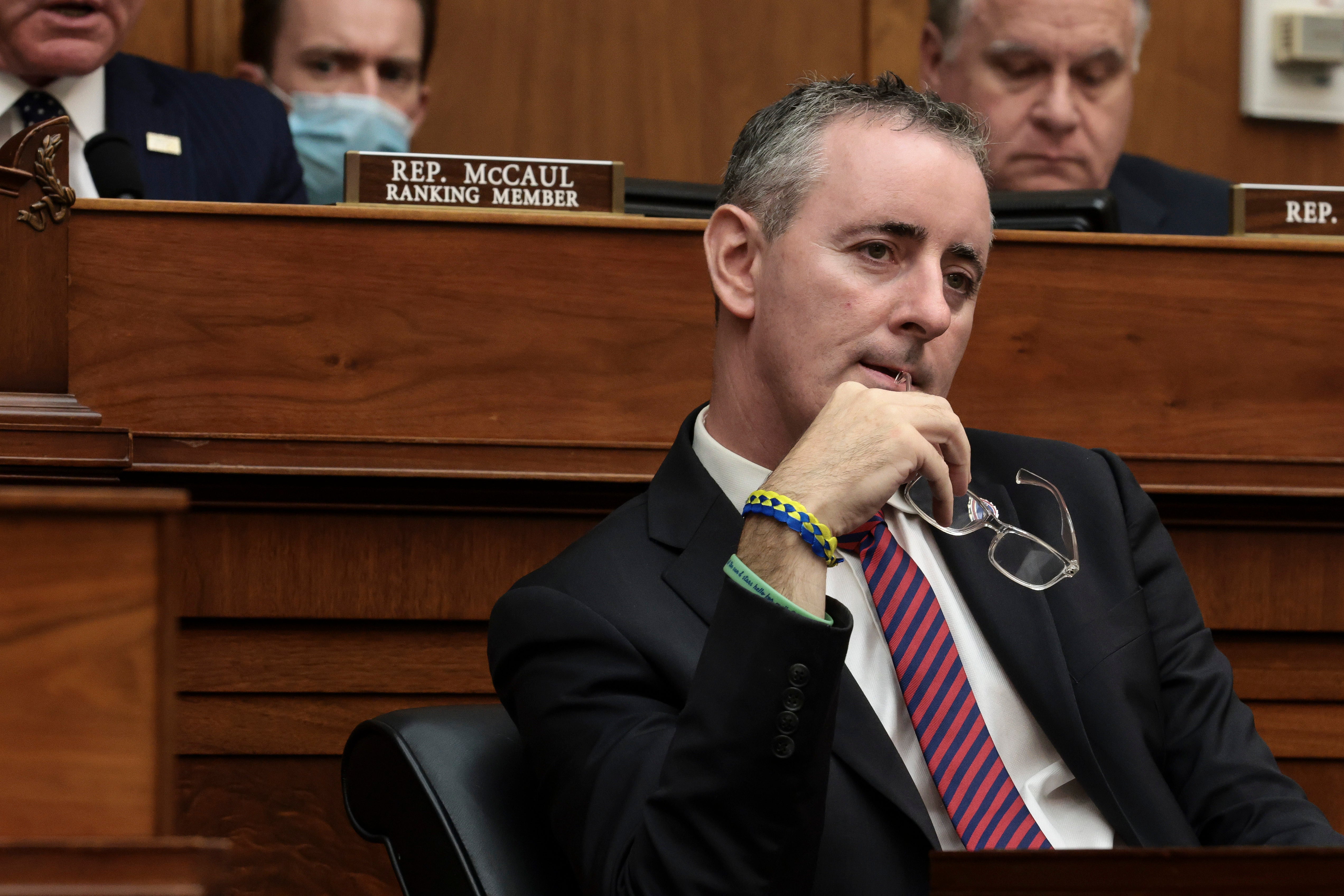
Five Republicans joined almost every Democrat in the House of Representatives to pass legislation that would prevent people who pose a danger to themselves or others from obtaining a firearm.
The House voted on Wednesday for the Federal Extreme Risk Protection Order Act, which would set up a procedure to allow for federal courts to issue extreme risk protection orders, which prevent people who pose a threat either to themselves or to other people from obtaining a firearm. Family members or law enforcement officers would be allowed to petition for a such an order.
Many states have so-called “red-flag laws” to prevent people who pose a danger from obtaining a gun.
The legislation is the second one to receive Republican buy-in. On Wednesday evening, the same Republicans also voted for the Protecting Our Kids Act. But four of the Republicans are also on their way out and planning to retire while only one is running for reelection. Here are the Republicans members of Congress who voted for the legislation, which faces long odds in the evenly split Senate.
Fred Upton (Michigan)
Mr Upton is one of the longest-serving Republicans in the House. Mr Upton announced earlier this year that he would retire after serving in Congress since 1987. Mr Upton was one of 10 Republicans who voted to impeach former president Donald Trump for his role in the January 6 riot.
“Rights. While I don't agree with every provision, we can't let the perfect be the enemy of the good. Now is the time to turn thoughts and prayers into action,” he said in a statement.

Anthony Gonzalez (Ohio)
The former wide receiver who played first for the Ohio State University and then professionally for the Indianapolis Colts, Mr Gonazlez was also one of 10 Republicans who voted to impeach Mr Trump. At age 37, he was once considered one of the most promising young Republican members of Congress, he shocked many when he announced he would not run for re-election.

Brian Fitzpatrick (Pennsylvania)
Long considered a target by Democrats because he represents one of the swingiest districts in the country, in 2020, Mr Fitzpatrick’s district voted for President Joe Biden. After redistricting, his district has a dead-even partisan lean to it. As a result, he’s often voted with Democrats, having joined them in passing the bipartisan infrastructure bill. He’s the sole Republican who voted for the legislation seeking reelection. On Wednesday, he described why he voted for the Protecting Our Kids Act.
“Let me be clear: I am a strong supporter of the Second Amendment and all of the protections that it entails,” he said. “I also believe that we have no higher responsibility as leaders, no higher responsibility as human beings, than to protect our children and to keep our community safe. These are not and must not be mutually exclusive concepts.”
Adam Kinzinger (Illinois)
Mr Kinzinger is retiring at the end of this term after redistricting would have put him in a member-on-member primary against a more Trump-friendly Democrat. A member of the House select committee investigating the January 6 riot, Mr Kinzinger has become one of the most outspoken critics of his own party. Mr Kinzinger noted that the Protecting Our Kids Act also includes a provision to ban bump stocks, which codifies a Trump-era executive order banning them.
“This is a solid point. Trump banned bump stocks. Would be interesting if some enterprising journalist dug up prior comments of these no votes. Did they become more PRO bump stocks? Or is this vote just about politics,” he tweeted’ America deserves better”
Chris Jacobs (New York)
The first-term Republican shocked many last week when he announced he would not seek reelection. That came after he had said he would support an assault weapons ban after a white supremacist allegedly shot and killed 10 Black patrons at a supermarket in Buffalo. When asked about what he thought about the fact that an assault weapons ban was likely off the table in Senate negotiations, he said he would vote for one if it came to pass.
“I think we have to first establish trust between the parties and between urban America and rural America,” he said on Wednesday. “And right now we don’t have that.”







